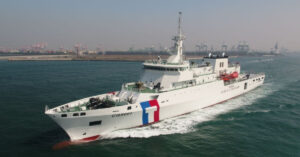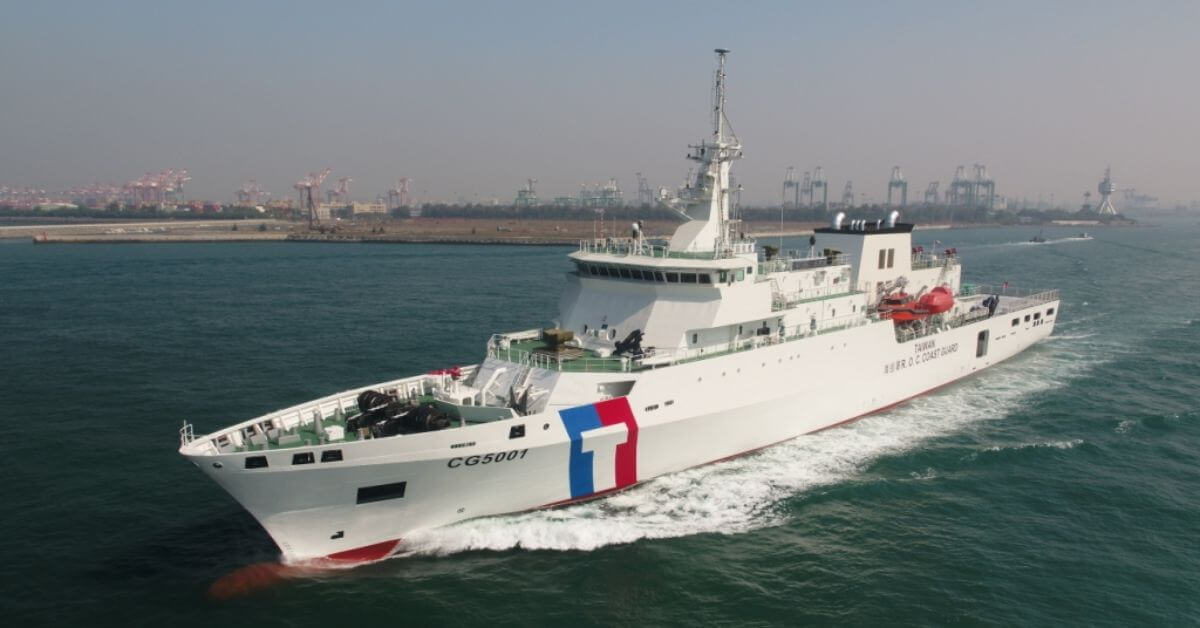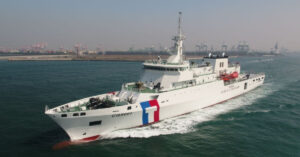
LR Grants AiP For Floating Ammonia Cracker Unit To Power Onshore Hydrogen Supply
September 11, 2025
Canadian Shipbuilder Davie Reveals Plans For $1B Icebreaker Factory In Texas
September 11, 2025

Taiwan has launched round-the-clock patrols in the Taiwan Strait to defend its undersea cables, which officials say are now a target of China’s “grey-zone” tactics. This comes after multiple incidents of suspected sabotage that threatened the island’s vital communication links.
The focus is on the TP3 cable, one of 24 that connect Taiwan to domestic and global networks. Earlier this year, the cable made international headlines when a Chinese captain was found guilty of deliberately cutting it.
Taiwanese authorities said the disruption forced coast guard officers to escort the Chinese-crewed vessel Hong Tai 58 for investigation after TP3 went offline in February.
Coast guard officials said that protecting these cables has become a top priority. Patrol vessels, some weighing 100 tons and equipped with water cannons and autocannons, now monitor the area day and night.
An alert system has been set up to detect vessels moving slowly within one kilometre of TP3, while radar stations staffed by dozens of operators track suspicious ships. Boats that approach the cables receive radio warnings before patrol vessels are dispatched to drive them away.
Taiwanese authorities linked two suspected sabotage cases this year to China-linked boats, including one incident in the north of the island. Officials warned that such activities are part of China’s grey-zone warfare strategy, actions designed to drain Taiwan’s resources and cause disruption without crossing into outright war.
The effort has strained Taiwan’s coast guard. Nearly 500 officers and eight patrol vessels in the region are responsible not only for cable protection but also for life-saving missions and law enforcement at sea.
Security officials said Taiwan is keeping close watch on 96 China-linked vessels already blacklisted. Many of these ships use “flags of convenience,” registering in third countries to avoid scrutiny, taxes, or regulations.
In addition, nearly 400 other China-linked vessels, including cargo ships that could be repurposed as war assets, are under surveillance. Intelligence on their movements is being shared in real time with allies and “like-minded” governments, officials added.
Coast guard commanders described many of the Chinese-linked vessels as old and poorly maintained, yet still capable of causing disruption. They said these boats use limited resources to damage cables and create instability in Taiwanese society.
Taiwan’s National Security Council noted that the island is among the most exposed to this threat because of its geographical closeness to China and the heavy concentration of submarine cables in nearby waters.
Reference: Reuters
Source: Maritime Shipping News


